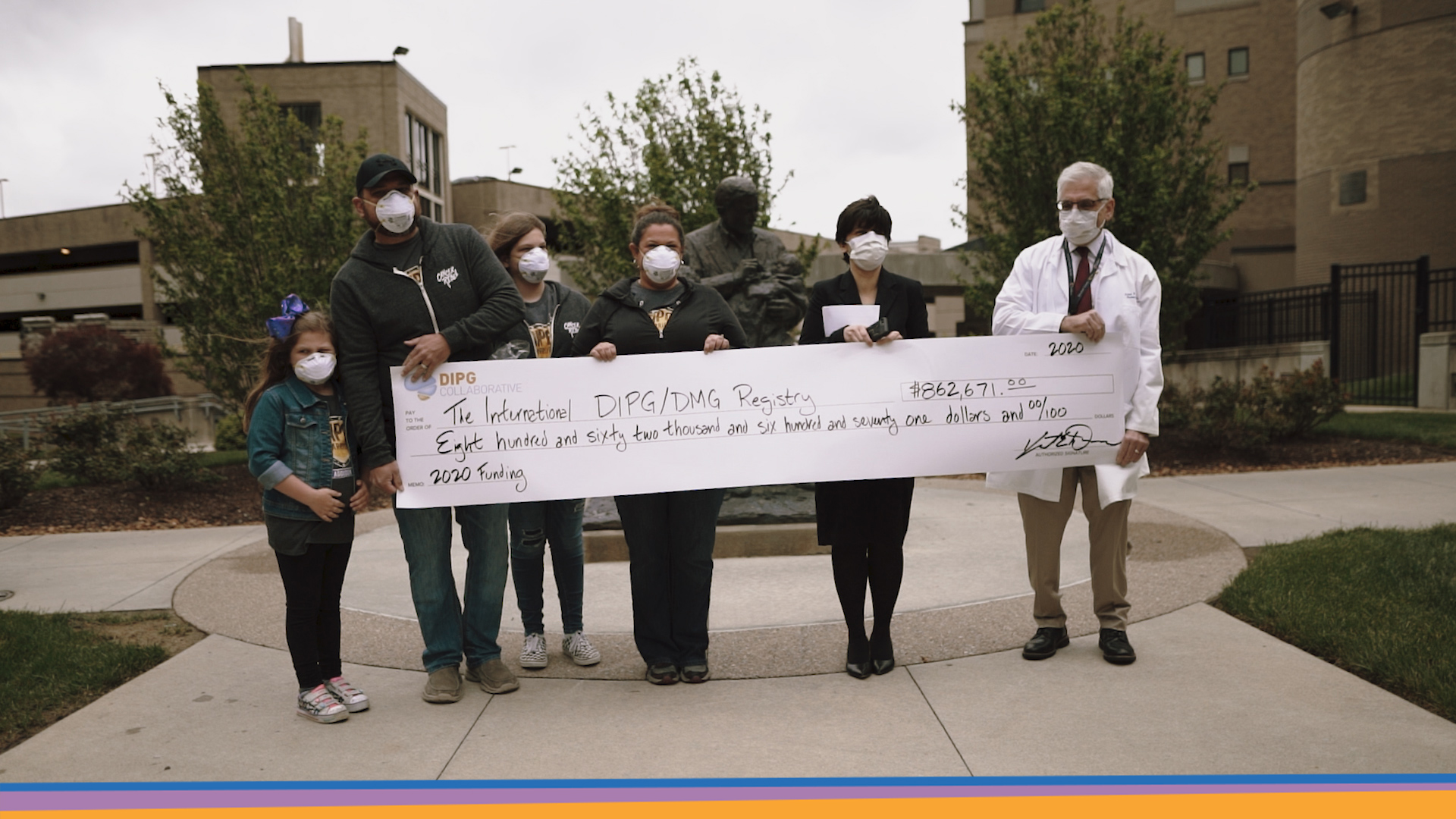The world was forced to grind to a halt because of the COVID-19 pandemic. The shutdown has caused a domino effect, that is being heavily felt by many, including nonprofits like The Cure Starts Now. I sat down with Keith Desserich, Co-Founder and Chairman of The Cure Starts Now, to gain insight into how this global pandemic is impacting the crucial research funding we provide to the brain cancer community.
Research Fundraising
Due to potential COVID-19 health risks and mandatory stay-at-home orders enacted by federal and local governments, it was necessary for The Cure Starts Now to cancel and/or postpone vital spring fundraising events that are crucial to our cause, such as the annual Once In A Lifetime Gala, Jade’s Annual Warrior Ball and Team Brock Golf Fore a Cure 2020. Currently, fundraising dollars are down by approximately 30 percent when compared to this time last year, which will have a significant impact on our ability to fund grants.
“The good news is, The Cure Starts Now did prepare by focusing on a long-term strategy and on programs such as CONNECT that are not as subject to the whims of economic conditions,” said Desserich. “But even with preparation, funds can only last so long. We estimate that by the time we get to July of this year, the coronavirus pandemic will have a very real impact on the research we are able to fund and the trials we’re hoping to fund in 2021. If everything turns around, it’ll be good, but if it doesn’t, we will have to make some adjustments to our funding plans.”
Research Outlook
Majority of charities fund grants one of two ways, either ‘Give Locally, Act Locally’ or ‘Best-Of’ funding. ‘Give Locally, Act Locally’ is exactly what it sounds like, charities solicit donations from local donors, and then turn around and fund local research grants. While ‘Best-Of’ funding is when a charity has a predetermined amount of money to award to a predetermined amount of grant applicants, and then chooses to fund the best submissions that they receive, even if the best isn’t top quality. This is more of a passive competitive way of funding and can also lead to many great quality grants being left unfunded. It also fails to adopt a long-term strategy, instead forcing researchers to think in limited budgets with limited funds in order to be accepted.
The Cure Starts Now takes a different approach. Rather than simply funding locally or even purely through a passive competitive process, we fund grants strategically and are frequently developing collaboratives to focus on data trends in a long-term 10-year plan. This brings together not only the best research, but also ensures that with each grant we move one step closer to the cure in a strategic manner. This is done in combination with our Medical Advisory Council that fosters applicants through multiple Symposiums and formulative discussions. By doing it this way, The Cure Starts Now is able to fund the proposals with the most potential in discovering the homerun cancer cure.
This past August in Sydney, Australia, The Cure Starts Now hosted one such symposium. At the International DIPG/DMG Symposium, medical experts from across the globe came together to provide new perspectives on research approaches, and collaborate on out-of-the-box long-term strategies for treatment. Now researchers who attended the symposium are submitting research grant proposals that could fundamentally change the cancer world. Unfortunately, these proposals are coming at a time when The Cure Starts Now’s funds are strained due to COVID-19.
“We’re coming off of this amazing conference with promising protocols and strategies that can fundamentally change the path of cancer research,” said Desserich. “All at the same time as being faced with a shortage of funds to fund them. As a charity, when you’ve invested this much into research and strategy, these small challenges have ripple effects that affect hundreds, if not thousands, of patients for many years to come.”
This means that the symposium, a result of five years of planning, because of the current pandemic, might be lost short of a strong fundraising outlook.
Clinical Trial Shutdown
According to National Public Radio, the coronavirus pandemic has forced hundreds of clinical trials to shut down and “about a quarter of the studies put on hold were for cancer treatment.” Clinical trials can be a matter of life and death, and for many cancer patients, they had their only treatment option taken away because our society deemed cancer researchers nonessential. This alone has caused all of the projects The Cure Starts Now had in the pipeline to be pushed back nearly 3-6 months.
“When you delay research by 3-6 months, it means that it won’t be there to offer hope a year down the line precisely when another child is diagnosed,” said Desserich.
The Cure Starts Now expects a record-breaking amount of grant proposals this summer and doesn’t want to turn away promising grants that could hold the key to curing all cancers. Still, with a lack of funds right now, it might unfortunately happen. Donations during this difficult time can help The Cure Starts Now by allowing us to say “YES” to the very best in cancer research.


